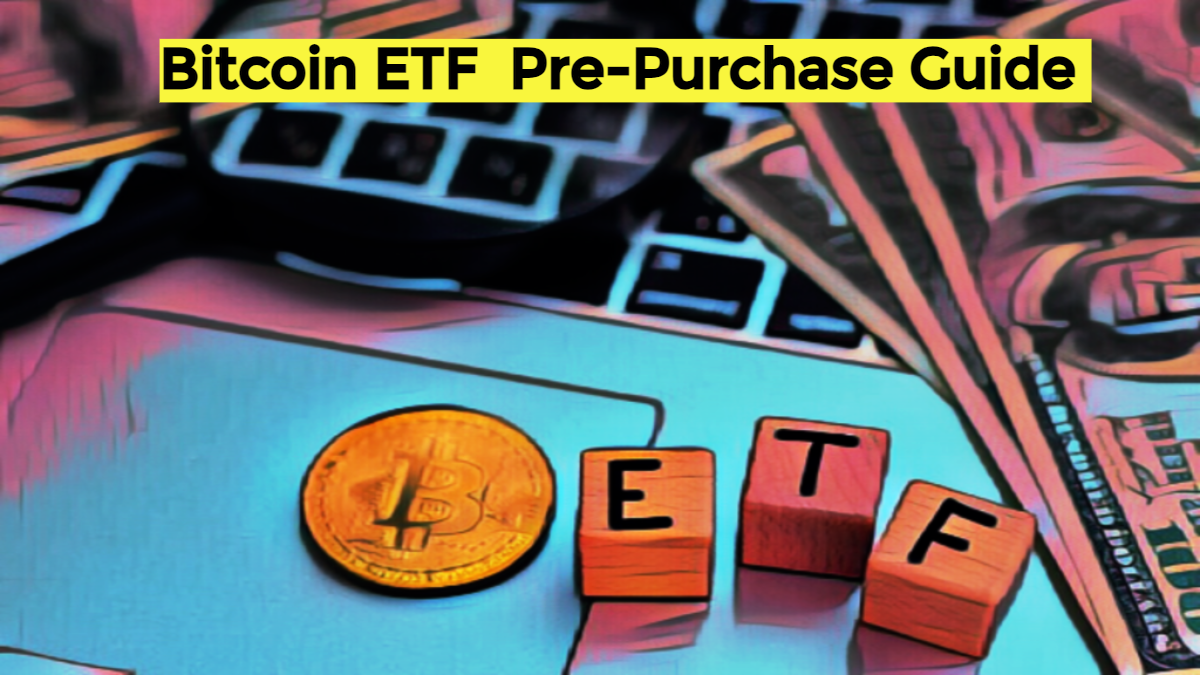- Understand the fundamental difference between decentralized Bitcoin and regulated Bitcoin ETFs.
- Spot Bitcoin ETFs involve a meticulous process, from secure storage to share issuance, aiming to mirror Bitcoin’s market value.
- Considerations before investing include cryptocurrency market volatility, management fees, and the unregulated nature of Bitcoin.
As Bitcoin ETFs gain regulatory approval and attract the attention of eager investors, a nuanced understanding of the dynamics between traditional Bitcoin ownership and ETF investment becomes crucial. Here’s an in-depth exploration of what potential investors should know before delving into the realm of Bitcoin ETFs.
Decoding the Distinction: Bitcoin vs. Bitcoin ETFs
At its core, Bitcoin stands as a decentralized form of cryptocurrency, operating on the blockchain, where transaction records are maintained through complex mathematical problem-solving, generating new units of the digital currency.
On the flip side, a Bitcoin ETF operates within the realm of regulated investment firms, adhering to the oversight of the U.S. Securities and Exchange Commission (SEC). Unlike the decentralized and unregulated nature of the Bitcoin spot market, ETFs, akin to mutual funds, issue shares registered with the SEC, boasting defined investment objectives managed by qualified professionals.
In the case of a spot Bitcoin ETF, investor funds are pooled to facilitate immediate Bitcoin purchases. The ETF, managed by an investment company, enters the conventional stock exchange arena.
Mechanics of ETF Investment: Unveiling the Process
Spot Bitcoin ETFs leverage registered custodians to securely store bitcoins in digital vaults, striving to replicate the cryptocurrency’s market value. The ETF initiates its journey by acquiring bitcoins from other holders or approved cryptocurrency exchanges. These acquired tokens find a home in a digital wallet fortified with multiple security layers.
Subsequently, the ETF issues shares proportionate to its total bitcoin holdings. The share price aligns with the prevailing cryptocurrency market rates, enabling public trading. To maintain this alignment, the ETF continually adjusts its holdings through token acquisitions or disposals.
Authorized participants (APs) play a pivotal role in the creation and redemption processes. Typically, large financial entities respond to market demand by issuing or redeeming ETF shares in substantial blocks. If ETF shares are trading at a premium or discount, APs undertake the creation or redemption of shares accordingly.
Critical Considerations Before Diving In Avoiding the FOMO
Before committing to Bitcoin ETFs, prospective investors must grapple with the nuances that govern the pricing, availability, and trading of these assets. Foremost among these considerations is the inherent volatility of the cryptocurrency market. The symbiotic relationship between cryptocurrency prices and ETF values implies that even minor fluctuations in digital asset prices can cast a shadow of uncertainty over ETFs.
While spot Bitcoin ETFs offer the convenience of bypassing the complexities associated with independently exchanging and securing bitcoins, they are not without their costs. Management fees and expense ratios are inherent in ETFs, gradually chipping away at potential profits.
Moreover, the lack of government regulation for Bitcoin introduces a layer of ambiguity. Challenges related to fraud, manipulation, and asset loss remain unclear in the absence of comprehensive oversight and regulatory frameworks. Until such regulations are firmly established, the market at large continues to grapple with the risks stemming from insufficient oversight.





